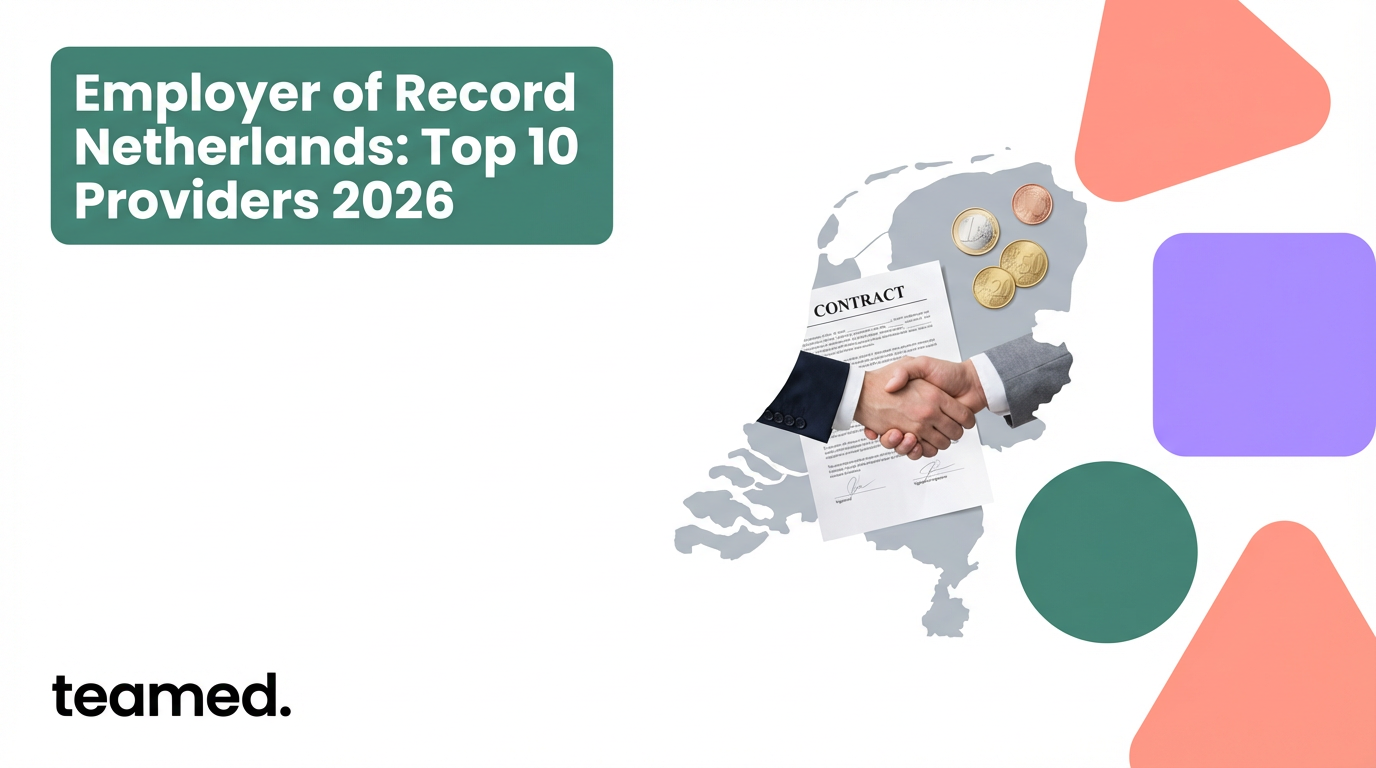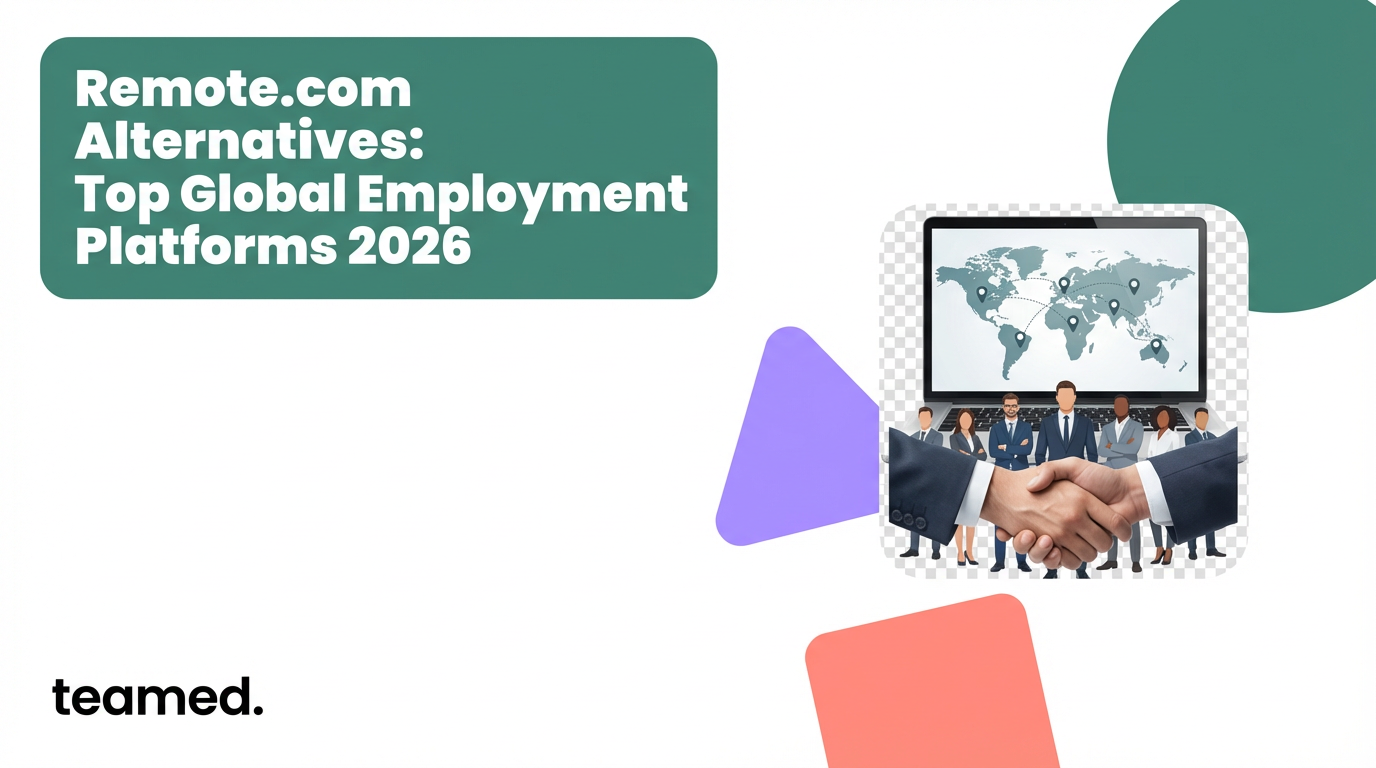The Philippines stands as a beacon of growth and potential for businesses looking to expand. With its thriving economy and favourable conditions for expansion like an English-speaking workforce and a growing number of young workers, many companies are drawn to this dynamic market.
To capitalise on these opportunities, you must prioritise and implement effective hiring practices to attract, select, and retain the best Filipino talent available.
This article will explore the importance of effective hiring practices, how they align with the growing business opportunities in the Philippines, and the best practices to follow when growing your team in the Philippines.
Overview of the Philippine labour market
A growing economy characterises the Philippines' labour market, a young worker population, and a favourable environment for the global expansion of foreign companies. The country has experienced steady economic growth in recent years, with a Gross Domestic Product (GDP) of 394.1 billion USD, consistently increasing.
One key advantage of the Philippines is its young and dynamic workforce. With a median age of 25, the country boasts a youthful demographic. This workforce is highly adaptable and tech-savvy, making them well-suited for the demands of the modern workforce.
The country also offers attractive incentives and policies to encourage foreign direct investment, such as tax breaks and streamlined business processes. The availability of cost-effective labour and a proficient English-speaking population further enhance its appeal as a business destination.
The trend of remote work has also gained traction in the Philippines. With advancements in technology and connectivity, many professionals and companies have embraced remote work arrangements. This trend offers numerous benefits, including increased productivity, reduced costs, and access to a broader talent pool.
The Philippines' skilled workforce and favourable time zone (GMT+8) make it an attractive option for companies looking to expand internationally.
Labour laws and regulations in the Philippines
The Philippines have unique laws in terms of employment regulations. Like any country, the Philippines has its own unique employment laws and as an employer, it is critical you understand these. Failing to adhere to employment regulations could result in legal issues.
Working hours: The working hours in a day must not exceed eight hours and should be exclusive of the one-hour daily lunch break. Any work performed beyond these limits is considered overtime and must be compensated accordingly.
Minimum wages: The minimum wage is currently at PhP610.00 for the private sector. This is approximately USD 340 per month.
Overtime pay: Overtime pay is generally calculated at a rate higher than regular pay, typically 125% to 200% depending on the circumstances.
Bonus: A 13-month bonus that equals a month's salary is provided by employers to the employees.
Paid time off: Employers are only required to provide service incentive leave (eligible after one year of service) rather than standard vacation or sick leave. Employees should be given five paid days off annually, which they can avail as sick or vacation leave. Employers with at most ten employees are not required to provide paid leaves.
Maternity leave: Pregnant employees in the Philippines may receive fully paid maternity leave of 60 days or more.
Notice and severance: When a company terminates an employee for just cause, they must provide at least 30 days of written notice.
Employee representation: The Labour Code of the Philippines recognises the right of employees to organise and form unions or employee associations.
A good Employer of Record (EOR) can ensure that your company aligns with these labour laws and keep you out of any compliance issues that may arise.
Best practices for hiring in the Philippines
When hiring in the Philippines, following best practices is essential to ensure a successful and effective recruitment process.
Developing a comprehensive job description
Start by creating a clear and detailed job description that outlines the roles, responsibilities, and qualifications required for the position. Be specific about the skills, experience, and educational background needed.
This will help attract suitable candidates and align their expectations with the job requirements. If you're hiring for a role where English is not required, it's also best to put up the job description in the Philippine language.
According to a survey, Philippine workers value companies with a vital purpose or vision. So make sure you mention your culture as a company in the job description to attract the right talent.
Utilising local recruitment channels
Leveraging local recruitment channels in the Philippines is recommended to reach a wider pool of qualified candidates. This can include online job portals, social media platforms, and local career fairs.
You can get access to specialised talent pools and streamline the hiring process if you partner with an Employer of Record, like Teamed, or a local recruitment agency who are familiar with the hiring landscape in the Philippines.
“I was initially quite apprehensive about hiring in a market like the Philippines because I had no idea what to expect. But Teamed gave us all the tools and support we needed, and now I feel confident in navigating these markets. The personal support Teamed provides is what makes them different. I know I can reach out whenever I have a question, and I always get a quick, informed response. They’re always there for us” | Amy Pantlin, Head of People at City Relay
Make use of the right technology
Using the right tools can help streamline the hiring process, especially if you are hiring remotely. You can use platforms for applicant tracking, video interview and background screening. Also, make sure your company website is optimised for mobile phones to make it easier for Filipino candidates.
Conducting thorough interviews and assessments
During the interview stage, it's essential to conduct comprehensive assessments to evaluate the candidates' suitability for the role. This can include behavioural interviews, skills assessments, and technical evaluations.
Consider using a structured interview with a standardised set of questions to ensure consistency and fairness. When engaging in job discussions with candidates, it is advisable to incorporate the Filipino language whenever possible.
While most candidates will be proficient in English, making an effort to use their language will create a comfortable environment and ensure their comprehensive understanding of the job's requirements.
Navigating salary and benefits negotiation
Negotiating salary and benefits can be a sensitive and crucial aspect of the hiring process. Research the market rates for similar roles in the Philippines to establish a competitive and fair compensation package.
Consider factors such as the candidate's qualifications, experience, and the local cost of living in that particular region of the Philippines. Engaging with legal and HR professionals familiar with local labour laws regarding minimum wages and benefits can help ensure compliance and avoid potential issues.
Make sure you convert all monetary values into Philippine pesos and mention compensation in terms of net salary rather than gross salary. This is to reframe your pay discussions to align with Filipino norms and prevent confusion.
Tips for successful hiring in the Philippines
Here are some tips to avoid hiring difficulties in the Philippines.
Build a strong employer brand
Job seekers also consider the company's reputation when applying - 75% of active job seekers are likely to apply for a job if the employer actively manages its employer brand.
So, ensure your company's digital footprint is up to the mark by updating your profiles, posting about company culture and employee stories, and responding to reviews. Communicate your company's mission, values, and culture through various channels, such as your website, social media platforms, and job advertisements.
Highlight unique selling points, such as a positive work environment, employee testimonials, or awards received. A strong employer brand can differentiate you from competitors and make your organisation an attractive workplace.
Offer competitive compensation packages
As mentioned above, the minimum wages in the Philippines are significantly lower compared to European countries. You have the potential to offer a better salary package to employees, giving you a competitive edge in the Philippine labour market.
Consider offering additional benefits, such as health insurance, performance bonuses, or employee development programs, to enhance your compensation package and attract top talent. You can also offer remote or hybrid work opportunities as Filipino workers become more interested in remote work.
Providing growth opportunities and career development
According to a report, Filipino professionals value opportunities for growth and career advancement even more than salary packages.
Emphasise the potential for professional development within your organisation. Outline clear career paths, training programs, and mentorship opportunities that can help candidates enhance their skills and progress in their careers.
You can offer stipends to cover their education or training as part of their benefits package and offer coaching by senior members. This will attract ambitious individuals motivated to learn and grow with your company.
Emphasising work-life balance and employee well-being
In the Philippines, work-life balance and employee well-being are increasingly valued by job seekers. This is probably because the laws regarding paid leave could be more generous, as we mentioned before. If you offer more leaves and flexibility, you can attract a more enthusiastic worker base.
Highlight your organisation's commitment to work-life balance initiatives, such as flexible work arrangements, wellness programs, or employee assistance programs. Communicate policies that promote a healthy work environment, such as reasonable working hours and supportive company culture.
Demonstrating a genuine concern for the well-being of your employees will make your organisation more appealing to potential candidates.
Prioritising diversity and inclusion
Promote diversity and inclusion in your hiring practices. Strive for a diverse workforce by seeking candidates from different backgrounds, genders, and ethnicities. Cultivate an inclusive work environment that values and respects different perspectives. This will attract top talent and contribute to a more innovative and dynamic workplace.
Challenges to Consider When Hiring in the Philippines
Generally, hiring in the Philippines market is similar to other countries. However, it would be best if you kept a few things in mind to ensure a smooth hiring process:
Language and Communication Challenges
Although most Filipino workers are educated in English, it's always best to consider the language barrier. Provide clear job descriptions and communication materials in both English and Filipino.
This ensures that candidates with varying levels of English proficiency can understand the requirements and expectations.Utilise bilingual staff or language interpreters during interviews and assessments to facilitate effective communication with candidates. Even better, take the help of an EOR, like City Relay did when hiring in the Philippines, and they'll be able to handle the requirements for you.
"As a business, you have to put in the work too. We’ve worked hard to make sure our remote team feels like part of the company - including communication. That’s what makes this model of hiring work.” Amy Pantlin, City Relay
Cultural Differences in the Workplace
The Philippines is a culturally diverse country, which will also reflect in your workplace. Take measures to make sure your workplace remains culturally inclusive. Promote awareness and respect for different cultural backgrounds by providing cultural sensitivity training to employees.
Be mindful of cultural nuances during interviews and assessments. Avoid biases and ensure fairness by focusing on job-related competencies rather than personal preferences. Encourage open dialogue and celebrate cultural diversity.
Compliance with labour laws
Learning and staying updated on the labour and compliance laws and requirements for foreign companies can take time and resources.
To start expanding internationally without delay, consider partnering with an EOR, like Teamed, who is familiar with the local labour laws and culture. You can also seek legal counsel or consult with human resources professionals familiar with local labour laws to ensure compliance throughout the hiring process.
Professionals can help you maintain accurate records of employee documentation, such as contracts, benefits, and leave entitlements, to demonstrate adherence to labour laws and regulations.
Make Use of the Dynamic Philippine Labour Market
The Philippines' growing economy, young workforce, and favourable business environment make it an ideal destination for global expansion.
By adopting these best practices and tips, businesses can effectively navigate the hiring landscape, establish a talented and diverse workforce, and contribute to long-term success. In addition to the best practices and tips mentioned earlier, another valuable consideration for businesses hiring in the Philippines is partnering with an Employer of Record (EOR) service provider, like Teamed.

We can take away all the concerns you may have around global hiring, including legal compliance, payroll and tax - just like we did with Amy and her team at City Relay! In addition, we can also advise you on competitive benefits packages according to your requirement.
Connect with our team to learn more about our services and quickly hire your first employee in the Philippines!







